Advertisement
The best films of 2023, according to our critics
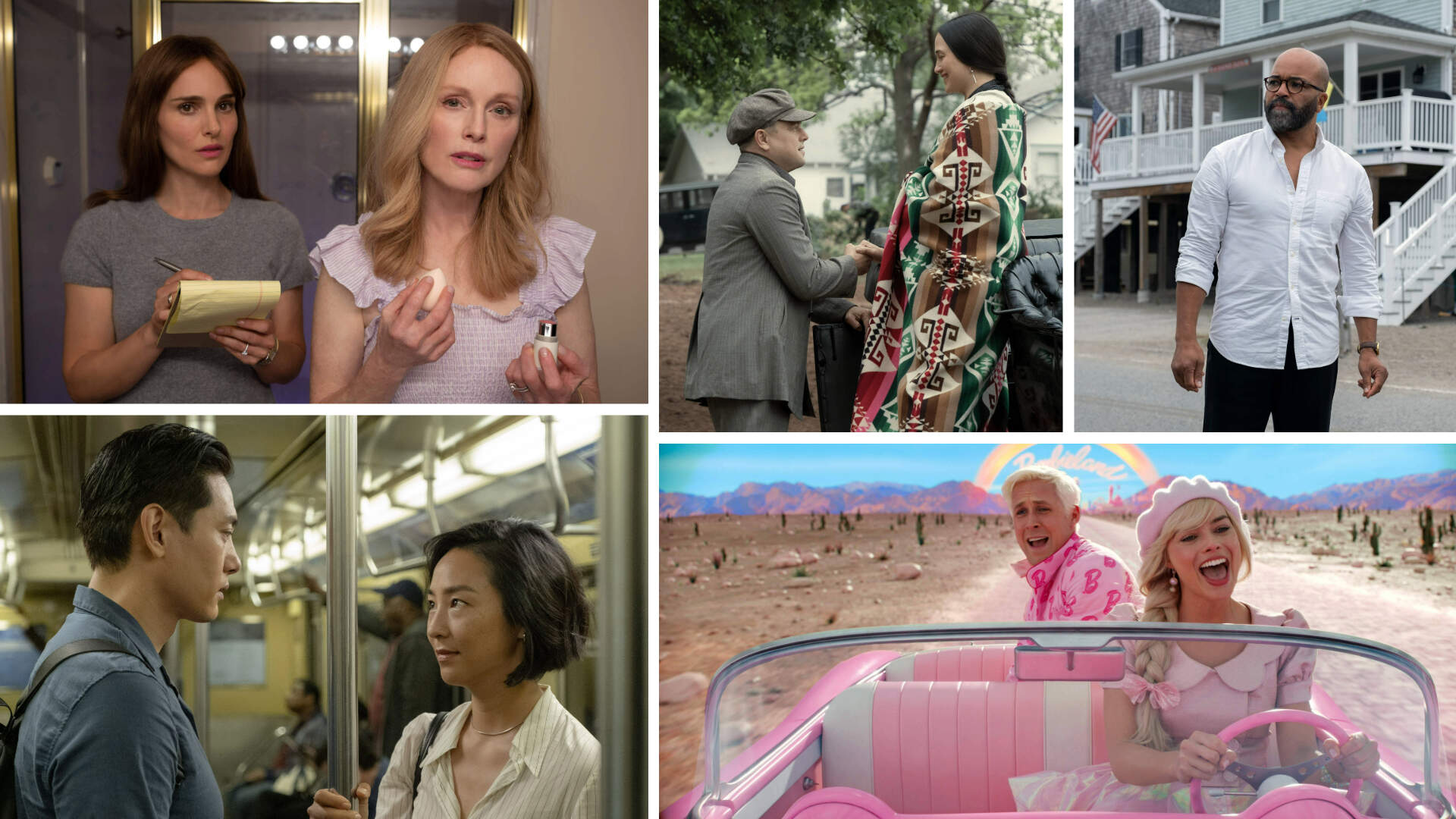
Film critics Sean Burns and Erin Trahan reflect on a year when audiences returned to the cinemas and movies felt like events again. Here are their favorites from 2023.
Sean Burns
As it turns out, reports of the death of cinema were greatly exaggerated. Moviegoing bounced back in a big way during 2023, with “Barbenheimer” fever dominating the cultural conversation in a fashion we haven’t seen since back before streaming and the pandemic ruined everything. It was fun for films to feel like events again, especially since these were two distinctive visions from idiosyncratic filmmakers taking big swings. At the same time, some of us couldn’t help but smirk at the long-awaited collapse of the “Superhero Industrial Complex,” with disastrous returns for dross like “The Marvels” and “The Flash” signaling an end to 15 years of spandex hegemony at the multiplex. In early December, a Hayao Miyazaki movie topped the U.S. box office, and the fact that a film as narratively sophisticated and morally ambivalent as “Oppenheimer” could gross more than $950 million says great things about the future of movies and the people going to see them. Audiences seemed more adventurous than usual this year, refusing to settle for the same old CGI sequels. And a strong, ambitious crop of films — easily the best bunch since 2019 — were there to meet them.
'Oppenheimer'
Christopher Nolan’s three-hour, feel-bad epic about the invention of the atomic bomb and the birth of our horrible modern age should, by all rights, be the most depressing movie of the year. Yet it plays like a white-knuckle thriller, electrifyingly assembled and exhilarating to watch. Shrewdly utilizing the famous faces of an all-star cast, Nolan and editor Jennifer Lame keep the film flowing across multiple time periods, compounding past and present tenses in a headlong rush of information and incidents. How often do you get this excited while watching people argue over security protocols and math? Cillian Murphy and Robert Downey Jr. deliver towering performances as the Mozart and Salieri of the nuclear era, but my favorite supporting turn comes from a chilling Casey Affleck as the communist-killing general who never raises his voice because he doesn’t need to. [Available on VOD.]
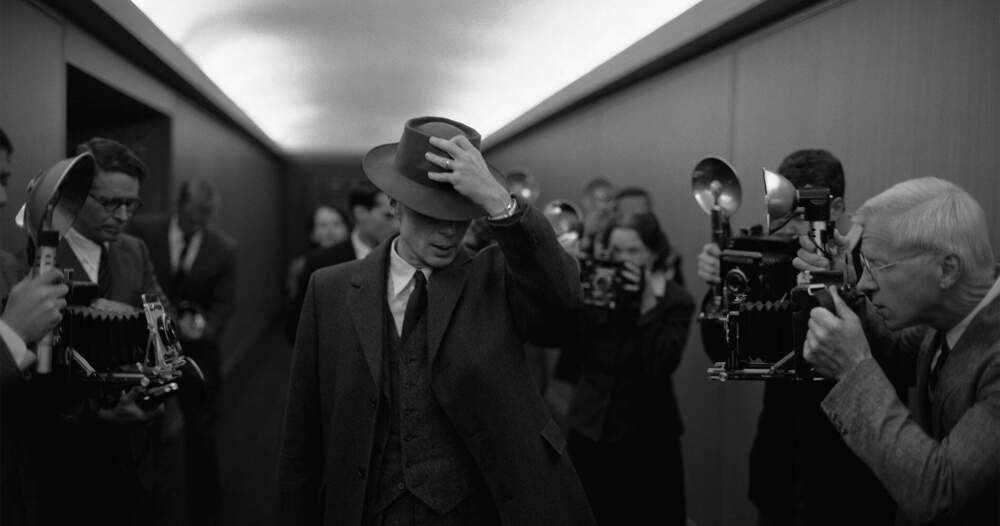
'Killers of the Flower Moon'
Martin Scorsese’s backbreakingly ambitious historical reckoning scraps the whodunit structure of David Grann’s bestseller about mass murders in Oklahoma’s Osage Nation, transforming a procedural into a moral inquiry. Systemic subjugation is up close and personal as we watch Leonardo DiCaprio’s gormless WWI veteran get talked by his silver-tongued uncle (Robert De Niro, terrifying) into slowly poisoning the wife he loves (a luminous Lily Gladstone) for her oil rights. There’s nothing secret nor even particularly clever about the conspiracies in this picture, they’re stupid and plain as day. Plumbing the depths of denial, the film’s epic length steeps you in amorality, forcing the audience to question our own complicity in the continuing horrors upon which this country was founded. Until Scorsese’s breathtaking, self-reflexive coda, which calls out the inherent limitations of a commercial entertainment even attempting to address such atrocities at all. [In theaters and available on VOD.]
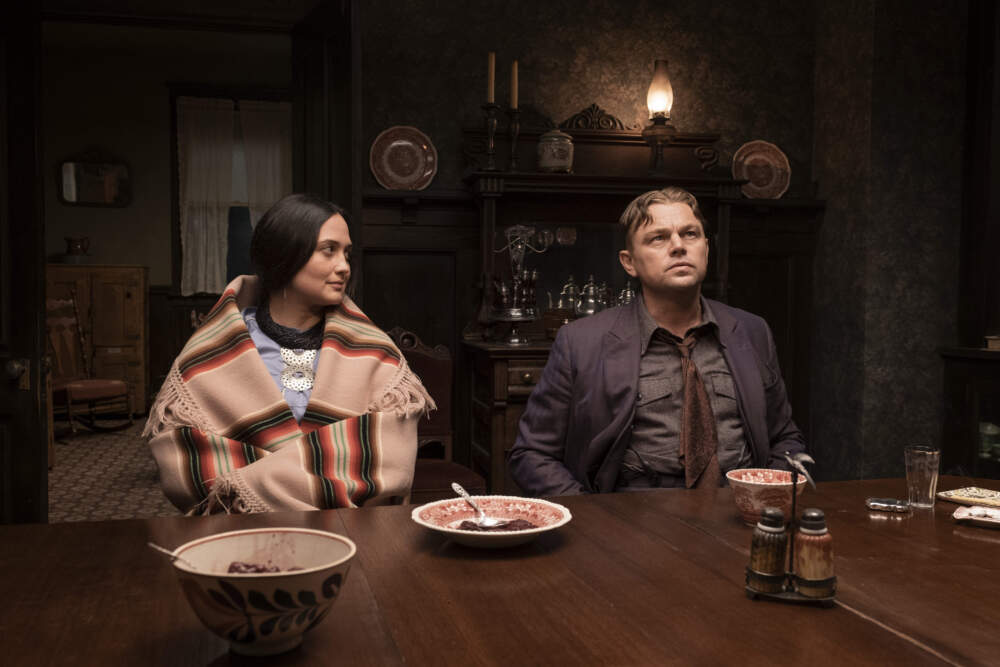
'Asteroid City'
“You’re the wife who plays my actress,” says Jason Schwartzman to Margot Robbie in the scene that unlocks Wes Anderson’s ingeniously constructed hall of mirrors. The tale of a grieving family attending an atomic-era children’s science fair in the desert is continually interrupted by backstage drama at a 1950s Broadway production of the very story we’re watching. Echoes of love and loss reverberate between the two realities. Then things start to slip. The play’s rehearsals are shot in sumptuous black-and-white, as opposed to the parallel narrative’s candied colors, but the boundaries become increasingly porous. Messy feelings spill over every attempt to contain them within Anderson’s patented dollhouse dioramas. Method acting and the scientific method are seen as two sides of the same coin, with characters using art and science to try and explain to themselves a sad and confounding world. [Streaming on Amazon Prime Video and available on VOD.]
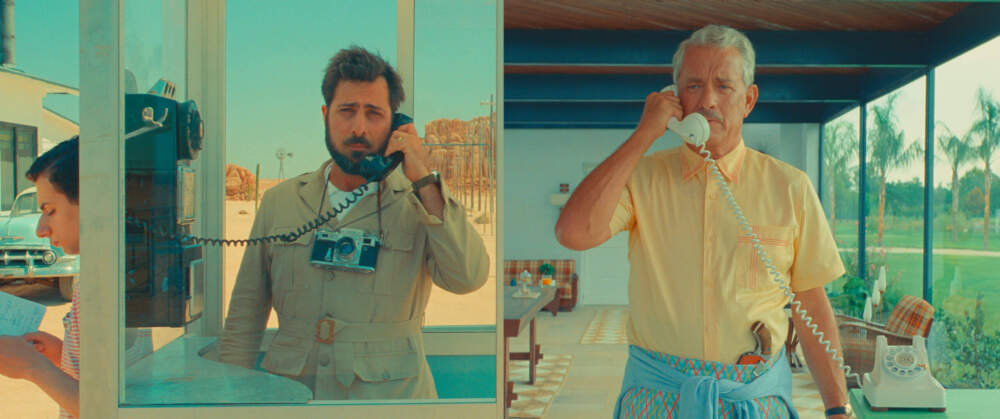
'May December'
More mirrors and Method acting madness abound in Todd Haynes’ delicious melodrama, loosely based on the 1990s Mary Kay Letourneau scandal, while also interrogating the public’s insatiable appetite for such sleazy stories. Natalie Portman gives the performance of her career as a vampiric actress studying her real-life subject (Julianne Moore) for a movie about the affair, luring the now-grown victim (a heartbreaking Charles Melton) into her increasingly unhinged preparations. Ever the mischievous semiotician, Haynes repurposes a jarring, 1971 Michel Legrand score to jostle the audience out of our complacency, an elbow in the ribs reminding us how crassly our true crime culture turns people’s traumas into campy entertainment. Watching Portman meld into Moore’s mannerisms suggests a tabloid version of Ingmar Bergman’s “Persona.” Haynes is probably the only filmmaker working today who would use an academic paper on epistemic relativism as a punchline. [Streaming on Netflix.]
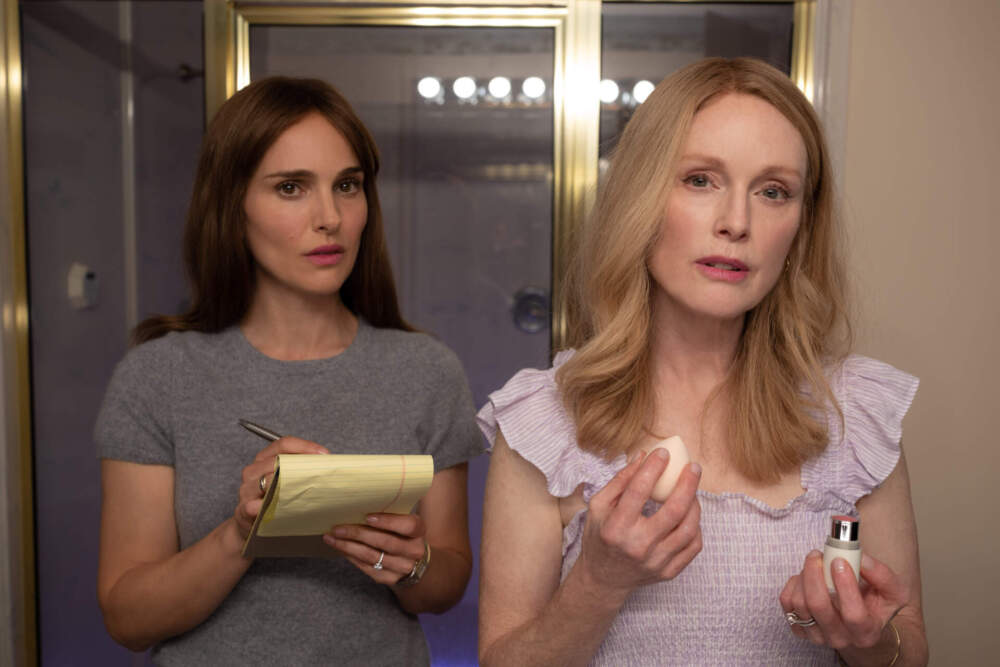
'Master Gardener'
If Martin Scorsese is cinema culture’s beloved grandpa, Paul Schrader is the irascible uncle who says amusingly inappropriate things during holiday dinners. Having spent his five-decade career chronicling the violent self-implosions of solitary men, Schrader throws a curveball with his latest provocation. Joel Edgerton stars as a former white supremacist terrorist in hiding, working as the head horticulturist at an antebellum estate owned by Sigourney Weaver’s kinky matriarch. He falls hard for his boss’ niece, a mixed-race drug addict less than half his age who’s in trouble with some local dealers. It’s deliberately outrageous and awash in loaded imagery, yet Schrader’s filmmaking is unexpectedly serene. This is his most hopeful and optimistic film, suggesting that the hatreds and divisions sown into the earth can be uprooted, and that love can redeem even the worst of us. As Edgerton’s protagonist reminds us, “plants rejuvenate.” [Streaming on Hulu and available on VOD.]
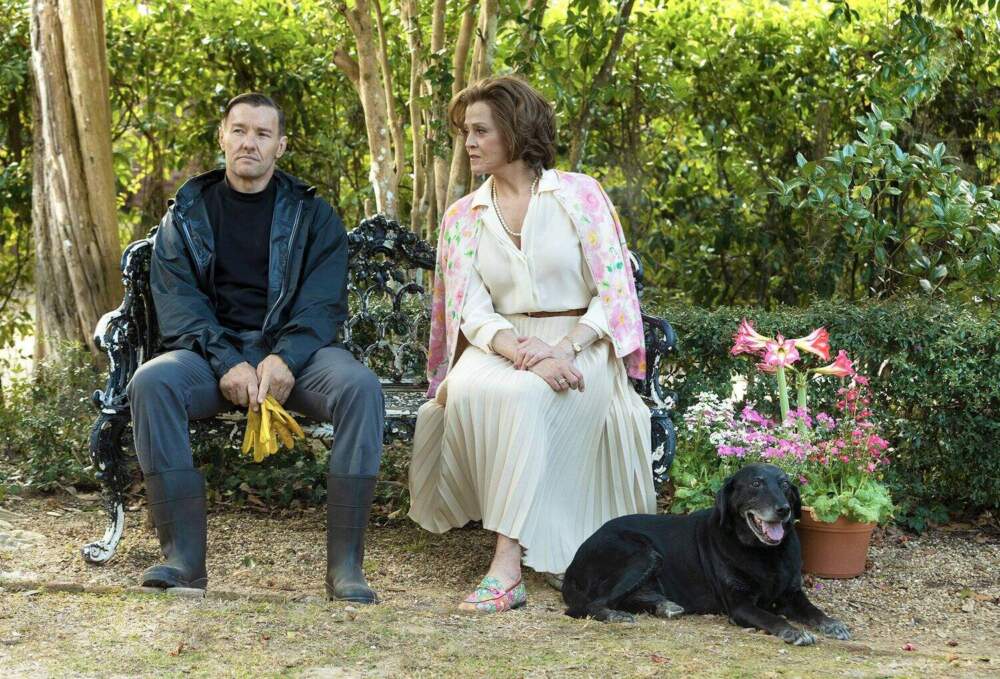
'Afire'
Writer-director Christian Petzold’s homage to the great Éric Rohmer begins as a small marvel of cringe comedy before taking an unexpectedly profound turn. Thomas Schubert gives a fearless performance as a fussy, buzzkill novelist spending a few days at a friend’s vacation house while attempting to edit his second book. In what will make a lot of writers feel uncomfortably seen, his process consists mostly of insisting he’s too busy to do anything fun before procrastinating and taking naps. Our condescending author effortlessly offends most people he meets, especially a free-spirited ice cream vendor played by the radiant Paula Beer. Meanwhile, wildfires rage to the north, occasionally casting shades of smoke and ash over the awkward encounters while everyone insists there’s nothing to worry about. Until there is. Enjoy yourself, the movie warns. It’s later than you think. [Streaming on The Criterion Channel and available on VOD.]
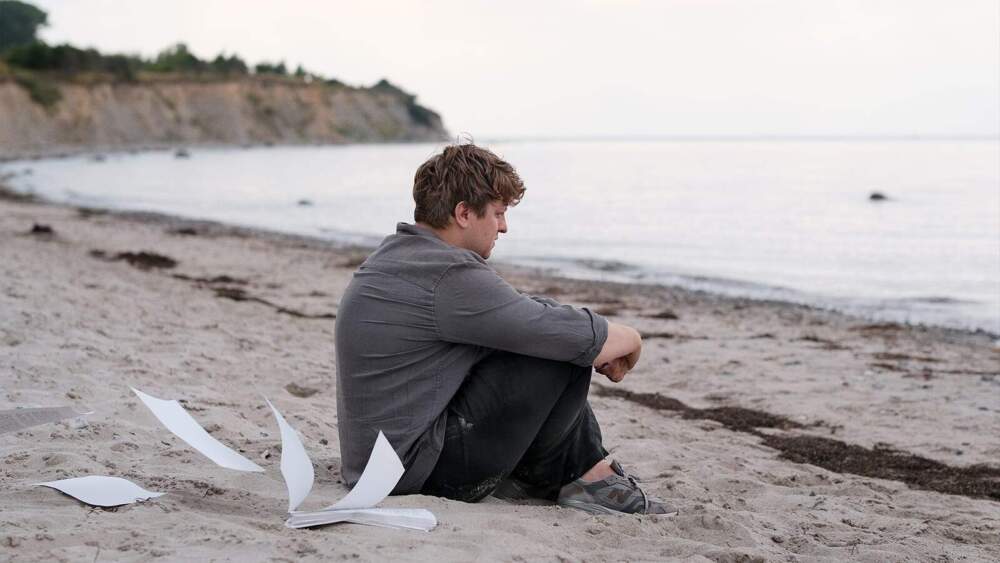
'Menus-Plaisirs - Les Troisgros'
The latest immersive process documentary from 93-year-old, Cambridge-based legend Frederick Wiseman spends 240 minutes examining the inner workings of a three-Michelin-star restaurant in France. As with all Wiseman movies, there are no interviews nor any narration — we simply observe the day-to-day business of an institution, with story threads and themes emerging organically as the film unspools. I hate people who use food analogies in reviews but this one really goes soup to nuts, even visiting the farms from which the chefs get their meat and produce, detailing extra levels of care that start with the soil. But don’t expect a shouty, sweary kitchen like “The Bear.” These are consummate, silent professionals, preparing and plating food with surgical precision. It’s also quite droll, with Wiseman quietly highlighting the performative aspects of presentation and consumption in fine dining culture. [Coming to Boston area theaters in January.]
'Beau Is Afraid'
This was the only time I’ve ever seen members of a preview audience give back their free promotional T-shirts after the screening was over. A three-hour nervous breakdown, “Midsommar” director Ari Aster’s monstrously funny, diabolically unpleasant odyssey is a sicko comedy in the vein of 1970s counterculture freakouts like Jules Feiffer and Alan Arkin’s “Little Murders” or Carl Reiner’s “Where’s Poppa?” Joaquin Phoenix stars as a mewling, middle-aged mama’s boy terrified of his own shadow, whose journey home for his mother’s funeral is continually sidelined by friendly psychotics and surreal interludes including but not limited to a giant penis monster in the attic. Obviously not a film for all (or most) tastes, but I laughed so hard I think I ruptured something. Especially during Phoenix’s morbid reunion with his childhood sweetheart (Parker Posey), which might be the scene of the year. [Available on VOD.]
'Perfect Days'
A cousin to the angels who watched silently over Berlin in his 1988 masterpiece “Wings of Desire,” the protagonist of Wim Wenders’ best film in decades is a janitor who spends his days cleaning public toilets in Tokyo, all but invisible to the city’s bustling crowds. As played by the mesmerizing Kôji Yakusho, he’s a man at peace with the simple things in life, listening to classic rock cassettes in his car and reading paperback books at bars. Akin to Jim Jarmusch’s “Paterson,” this is a portrait of a character who has clearly come out on the other side of something bad — though we’re left to guess exactly what. It’s a film about appreciating the way the sunlight falls between tree branches or the curative properties of Patti Smith’s “Redondo Beach.” It’s about finding transcendence in the everyday. [Coming to Boston area theaters in January.]
'John Wick: Chapter 4'
There’s an early shot that follows Ian McShane’s conniving concierge as he strides purposefully through an art museum, dwarfed by gargantuan masterpieces on the walls. He keeps walking, and walking, and then walking some more past some more paintings. Every insane action sequence in the final installment of Keanu Reeves’ career-resuscitating franchise is structured like that, distended past the point of absurdity until the literal overkill becomes orgiastic, even joyful. It’s a wild and crazy blowout, purposefully reminiscent of the Hong Kong heyday of directors like John Woo, with the dizzying choreography captured so cleanly you sit slack-jawed at the awesome athleticism on display. The film is also elevated by a deeply soulful performance from Boston-raised martial arts legend Donnie Yen as a blind gunman with a bone-dry wit and a broken heart. He steals the whole show. [Available on VOD.]
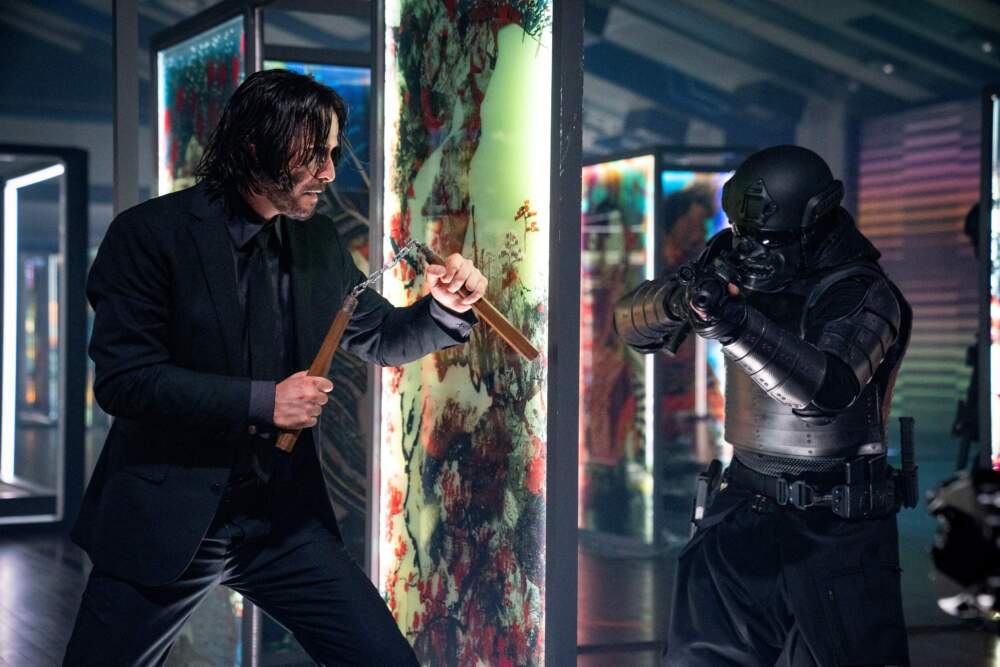
Honorable mentions: “20 Days in Mariupol,” “Are You There God? It’s Me, Margaret,” “Eileen,” “Ferrari,” “The Holdovers,” “Mission: Impossible - Dead Reckoning Part One,” “Past Lives,” “Priscilla,” “Showing Up” and “Tori and Lokita.”
Erin Trahan
Many 2023 movies fell competently in the above average zone but didn’t rise above say, a seven. There were lots of sevens. Movies I felt like I’d seen before, like “Asteroid City.” Or when technically perfect, like “Eileen” or “Saltburn,” the stories had no soul. Biopics like “Priscilla,” “Oppenheimer” and “Maestro” have a place. But they do not replace the originality of a knockout first-time feature like “All Dirt Roads Taste of Salt.” Given that, I hand 2023 over to the first-timers. All but two of my choices, listed below in no particular order, mark the debut of filmmakers I hope have long, robustly creative careers.
'All Dirt Roads Taste of Salt'
Raven Jackson imbues her stunning debut with the wisdom that joy and grief confoundingly intertwine and deepen over time. Told in pieces that span a lifetime, “All Dirt Roads Taste of Salt” recalls a rural Mississippi upbringing surrounded by early 1980s primary colors — seen in striped tube socks, plastic hair baubles and banana seat bikes. A father teaches his daughters to fish. A house catches fire. A mother cradles her child in the yard after a bath. Jackson boldly avoids a linear narrative, preferring impressionistic scenes shot in saturated 35mm with one of the best soundscapes (by Miguel "Maiki" Calvo) of the year. Some might call “All Dirt Roads” an immersive experience. I call it this year’s cinema at its best. See it in a theater if you can. [Not currently available on VOD.]
'You Hurt My Feelings'
The interiority of a writer’s life seems forever at odds with cinema. But movies about writers always draw me in and this was a particularly strong year for them. Two of my favorites, “You Hurt My Feelings” and “American Fiction” (more on that one below), are partly cut from the same cloth — semi-precious characters who’ve had some but not enough recognition. A privileged pretense is bread and butter for writer-director Nicole Holofcener, chronicler of talky middle-age New York women. In her latest, “You Hurt My Feelings,” a pitch-perfect Julia Louis-Dreyfus plays a nonfiction writer whose world falls apart when she learns her husband doesn’t like her first novel. Holofcener’s dramas function as a group affliction. Pull one string and all the characters feel it. She, and her film’s brilliant ensemble, accomplishes this feat with the lightest touch and a great sense of humor, making guilt-laden one-liners sink in without leaving a bruise. [Available on VOD.]
'American Fiction'
In “American Fiction,” Jeffrey Wright (who never has enough lead roles) walks the fine line of being a Black writer who doesn’t write “Black enough” and has the debt to show for it. Cord Jefferson, making his directorial debut, likewise brings humor to the screenplay he also adapted (based on Percival Everett’s book “Erasure”), in this case about the absurdity of navigating art and commerce amidst America’s unwinnable identity wars. Shot and set in Massachusetts, family relationships and class status are as significant to Wright’s character as his other selves. It’s part of the point to witness him juggling which “self” to bring forward at any given moment. “American Fiction” captures a wry and refreshing take on the mythology of the struggling writer that eluded AMC’s “Lucky Hank” (though I would watch a second season). Other writer movies that stood out this year include “Anatomy of a Fall,” a writerly couple duels over ambitions versus domesticity in a second language; “The Disappearance of Shere Hite,” an exceptionally thoughtful documentary about the feminist best-selling author; “Going to Mars: the Nikki Giovanni Project,” about the tough-as-nails poet and thinker; a documentary about author Judy Blume (“Judy Blume Forever”), alongside a fictionalization of her diary masterwork, “Are You There God? It’s Me, Margaret.” [Now in theaters.]
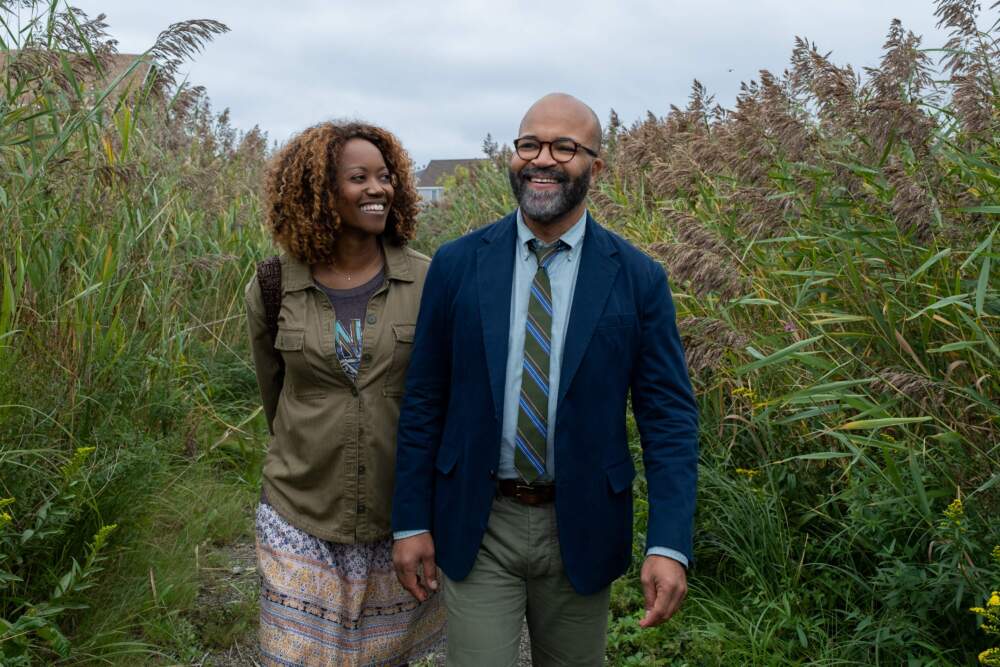
'Past Lives'
Again about writers and another debut film, written and directed by Celine Song, the deceptively simple “Past Lives” plods gently through a will-she or won’t-she leave her marriage storyline and explodes into much bigger questions. When an adult Nora (a lovely Greta Lee) reconnects with a childhood crush, she considers the consequences of leaving South Korea for the United States as an adolescent. It’s not just about if she and her sweetheart were “meant to be” but also who she is meant to be, on her own. What choice, if any, did or does she have in the matter? That question gets tossed back out to all of us with a delicacy and respect that demonstrates Song’s assurance as a filmmaker. Here's hoping this year’s critical praise sows the seeds for continued assurance on future projects. [Streaming on Apple TV+.]
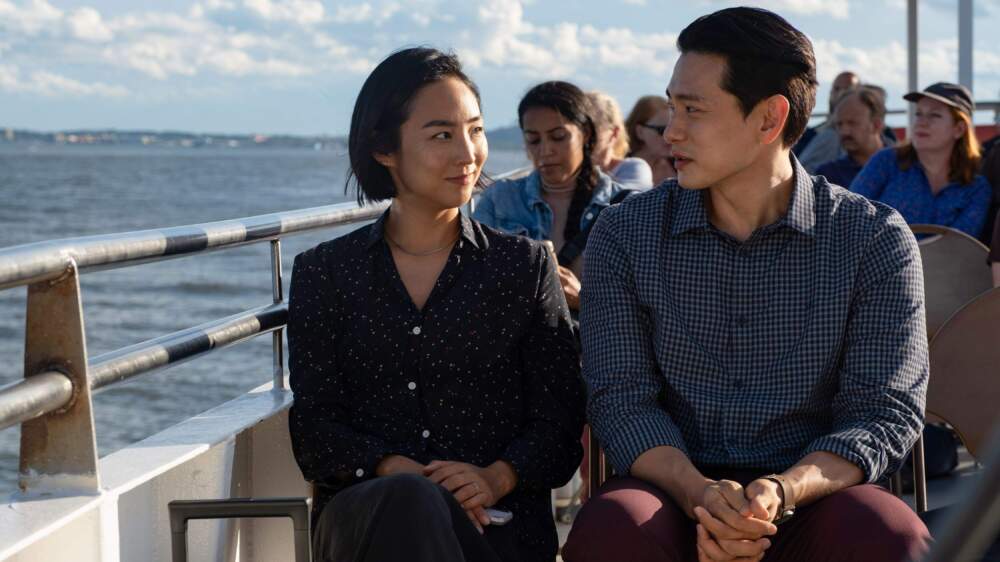
'How to Blow Up a Pipeline'
This title steps into the befuddling vacuum of fictional movies that tackle climate justice. "How to Blow Up a Pipeline" tops my list for its prescience, sense of urgency and for showing audiences the fury that exists just under the surface of Gen Z, in particular. Yes, the ragtag team that comes together to disable a Texas gas pipeline in protest of fossil fuels comes off as a little forced (like one of those auditioned bands), and true, the plan doesn’t always seem feasible. But because of the plot’s kinetic (renewable) energy and fluid editing by Daniel Garber, I couldn’t wait to see what happened next. Hats off to the collective talent behind this project, particularly Ariela Barer who co-wrote and stars in the film, for fearlessly tapping into what I foresee as an oncoming flood of thematically related films. [Available on VOD.]
'Barbie'
To “Barbie” or not to “Barbie?” Despite the abundance of media coverage this summer, nothing quite pinpointed my hesitation to endorse all things pink. My skepticism stems from the movie’s revisionist branding of a doll that in my childhood did not become a doctor or the president. She had one hair color, one skin color, one able and impossible body. A button on her back made her lips kiss. (She had quite a wardrobe, though.) I want the world to learn feminism 101 and have fun while doing it, too, but preferably free of trademarks. Plus, the irresistible Ryan Gosling, and Ken’s way more interesting song and dance story arc, stole the show. But the movie is fun, funny even, and director Greta Gerwig set the summer box office afire. When I remembered that I chose “Top Gun” last year for its capitalist acumen, I could not in good conscience exclude the far superior “Barbie” and its even more superior soundtrack from this year’s best. If it’s girls against boys (too binary, another part of the hesitation) then I choose pink all year long. [Streaming on Max and available on VOD.]
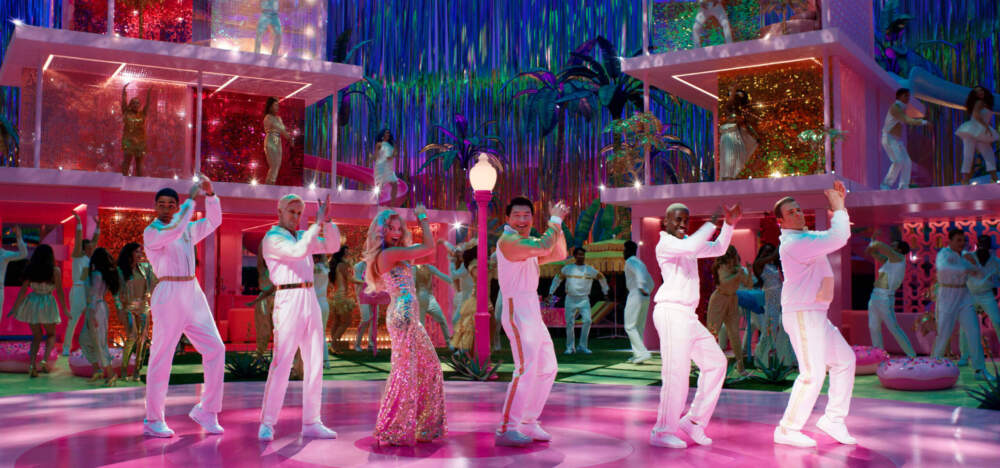
Honorable mentions: The Massachusetts cast and crew behind “The Holdovers,” a future Christmas classic, and the team behind the searing documentary “20 Days in Mariupol,” Ukraine’s Academy Award nominee for Best International Feature.

